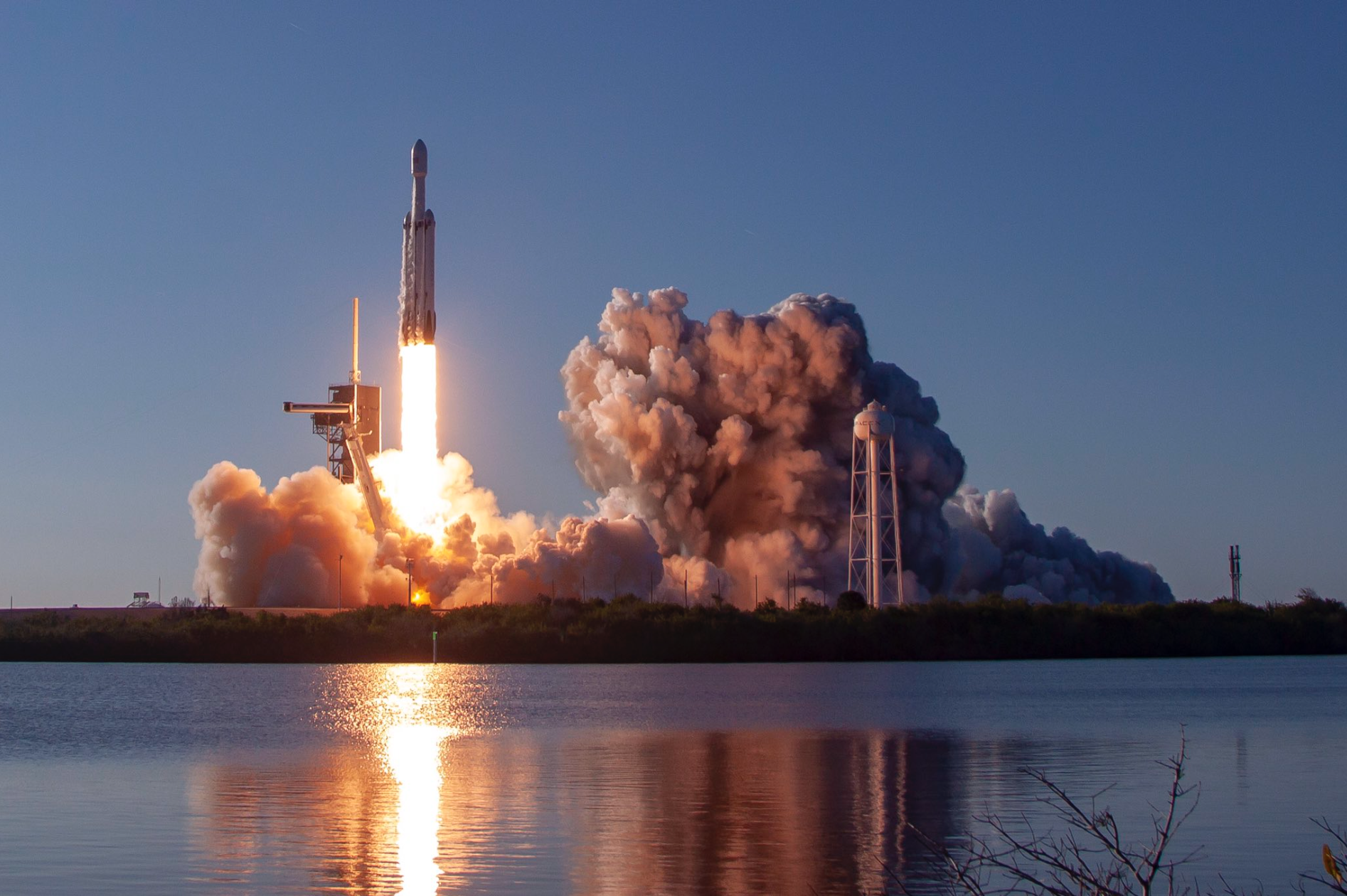Video: watch SpaceX land all three Falcon Heavy rocket boosters
Aerospace firm finally launches its most powerful rocket yet after series of setbacks

A free daily email with the biggest news stories of the day – and the best features from TheWeek.com
You are now subscribed
Your newsletter sign-up was successful
SpaceX has successfully carried out the first commercial launch of its most powerful rocket to date, following several setbacks earlier this week due to poor weather conditions.
The Falcon Heavy rocket lifted off from Florida’s Kennedy Space Center at 6.35pm (22.35pm UK time) yesterday, says space.com.
Minutes after blasting off, two of the rocket’s three boosters returned to Earth and landed vertically back at the space port, the website says.
The Week
Escape your echo chamber. Get the facts behind the news, plus analysis from multiple perspectives.

Sign up for The Week's Free Newsletters
From our morning news briefing to a weekly Good News Newsletter, get the best of The Week delivered directly to your inbox.
From our morning news briefing to a weekly Good News Newsletter, get the best of The Week delivered directly to your inbox.
The third booster, which has further to travel, touched down on the company’s autonomous floating landing pad called “Of Course I Still Love You” in the Atlantic two minutes later, says ITV.
It’s the first time SpaceX has successfully recovered all three stages of Falcon Heavy’s boosters. During the rocket’s test flight last year, the company was able to land the first two stages but failed to recover the final booster.
Yesterday’s mission marked Falcon Heavy’s second flight and its first commercial mission.
The rocket was used to carry Arabsat-6A, a Saudi Arabian communications satellite, into orbit some 22,236 miles above Earth, reports space news site nasaspaceflight.com.
A free daily email with the biggest news stories of the day – and the best features from TheWeek.com
Built by US aerospace firm Lockheed Martin, the six-tonne satellite will provide phone, internet and television coverage across “parts of the Middle East, Africa, and Europe”, the website adds.
SpaceX plans to reuse the three boosters recovered during yesterday’s mission to send Falcon Heavy back into space again later this year.
British communications firm Inmarsat will use the rocket to deploy one of its satellites into orbit, although an official launch date has yet to be announced.
-
 Political cartoons for February 7
Political cartoons for February 7Cartoons Saturday’s political cartoons include an earthquake warning, Washington Post Mortem, and more
-
 5 cinematic cartoons about Bezos betting big on 'Melania'
5 cinematic cartoons about Bezos betting big on 'Melania'Cartoons Artists take on a girlboss, a fetching newspaper, and more
-
 The fall of the generals: China’s military purge
The fall of the generals: China’s military purgeIn the Spotlight Xi Jinping’s extraordinary removal of senior general proves that no-one is safe from anti-corruption drive that has investigated millions
-
 Moltbook: the AI social media platform with no humans allowed
Moltbook: the AI social media platform with no humans allowedThe Explainer From ‘gripes’ about human programmers to creating new religions, the new AI-only network could bring us closer to the point of ‘singularity’
-
 Will regulators put a stop to Grok’s deepfake porn images of real people?
Will regulators put a stop to Grok’s deepfake porn images of real people?Today’s Big Question Users command AI chatbot to undress pictures of women and children
-
 Data centers could soon be orbiting in space
Data centers could soon be orbiting in spaceUnder the radar The AI revolution is going cosmic
-
 Inside a Black community’s fight against Elon Musk’s supercomputer
Inside a Black community’s fight against Elon Musk’s supercomputerUnder the radar Pollution from Colossal looms over a small Southern town, potentially exacerbating health concerns
-
 X update unveils foreign MAGA boosters
X update unveils foreign MAGA boostersSpeed Read The accounts were located in Russia and Nigeria, among other countries
-
 What's Linda Yaccarino's legacy? And what's next for X?
What's Linda Yaccarino's legacy? And what's next for X?Today's Big Question An 'uncertain future' in the age of TikTok
-
 X CEO Yaccarino quits after two years
X CEO Yaccarino quits after two yearsSpeed Read Elon Musk hired Linda Yaccarino to run X in 2023
-
 Musk chatbot Grok praises Hitler on X
Musk chatbot Grok praises Hitler on XSpeed Read Grok made antisemitic comments and referred to itself as 'MechaHitler'